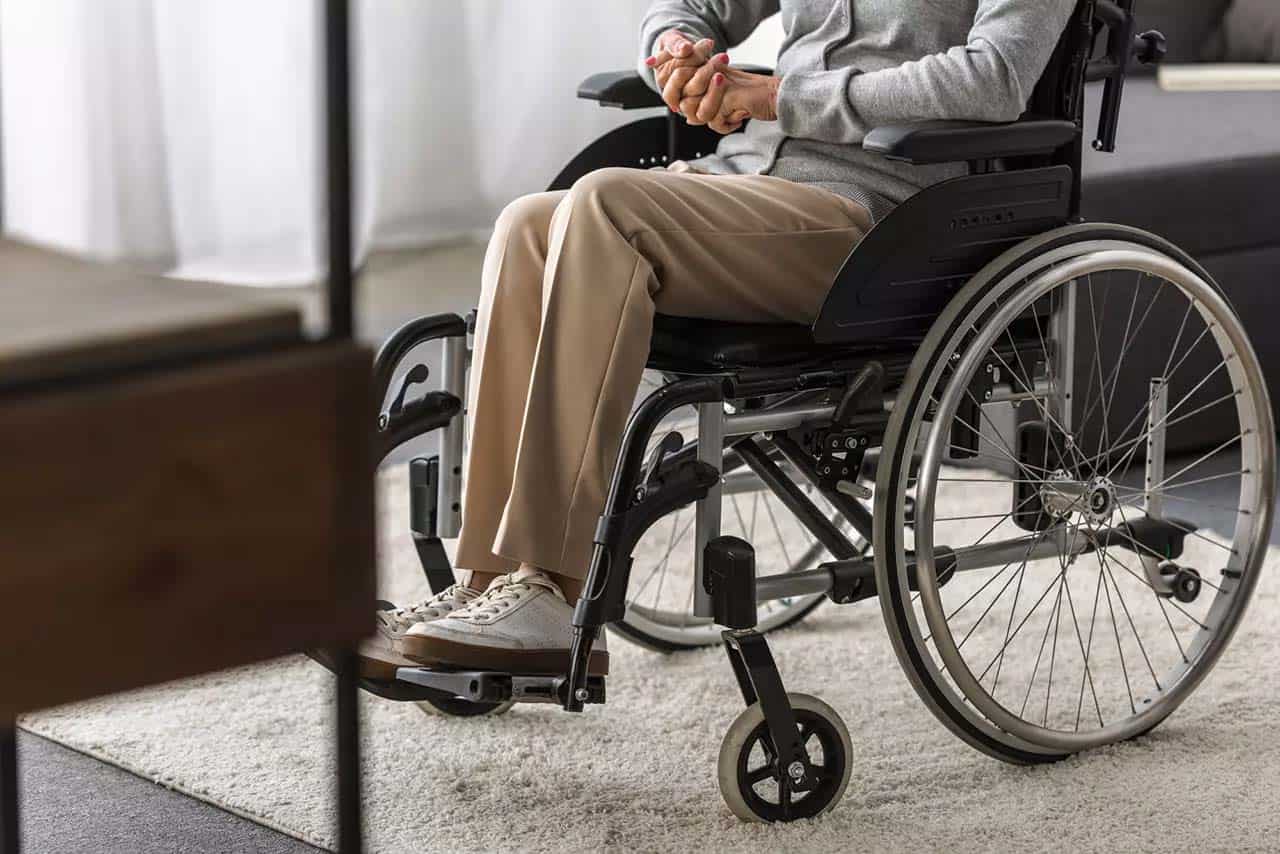Psychological value of home-based disability support
Psychological value of home-based disability support
Blog Article
The Importance of Handicap Solutions and the Effect of Home Treatment Providers
Handicap solutions are essential for improving the lives of people with disabilities. They use critical assistance that fosters self-reliance and health. Home care service providers play a vital duty in this framework by delivering personalized help tailored to special requirements. This assistance not just benefits individuals yet additionally relieves the strain on family caretakers. Understanding these dynamics discloses a deeper link between autonomy, community, and care. What lies in advance for these essential solutions and their impact?
Understanding Special Needs Solutions
While lots of might not totally grasp the complexities of disability solutions, they play a necessary role in boosting the lifestyle for individuals with disabilities. These solutions include a vast array of support group created to assist people in maneuvering everyday challenges. From supplying accessibility to education and employment possibility to assisting in healthcare and rehabilitation, special needs services aim to advertise freedom and inclusion.Key components include situation monitoring, campaigning for, and assistive technology, which assist people attain personal objectives. Furthermore, community-based programs frequently promote social links, lowering feelings of isolation. Various organizations and government entities collaborate to assure that individuals get tailored support according to their distinct requirements. Recognizing these services is crucial, as they empower people with handicaps to lead fulfilling lives, proactively join their communities, and recognize their possibility. Ultimately, efficient handicap services are fundamental to advertising equity and accessibility for all.

The Function of Home Care Providers
Home care companies play a necessary function in providing customized support to people with handicaps, allowing them to preserve independence in their own homes - ndis providers. These experts offer a wide array of services customized to meet the one-of-a-kind requirements of each person, guaranteeing that support is both effective and pertinent. They help with everyday tasks such as meal prep work, individual hygiene, and medicine administration, which are important for enhancing the lifestyle for those they serve.Moreover, home treatment service providers work as a vital web link between individuals and their healthcare needs, promoting communication with doctor and coordinating needed solutions. Their visibility additionally minimizes the burden on family members caretakers, promoting a much healthier dynamic within homes. By promoting a helpful and risk-free setting, home treatment suppliers encourage individuals with handicaps to engage with their communities, seek personal interests, and ultimately lead fulfilling lives while staying in the convenience of their homes
Personalized Treatment and Support
Personalized care and support are vital parts of efficient home care services, as they satisfy the individual demands and choices of each person with an impairment. Home care carriers examine the one-of-a-kind needs of each client, creating tailored plans that prioritize their comfort, wellness, and wellness. This customized technique not just enhances the quality of care but additionally promotes a sense of dignity and respect.Caregivers are trained to adapt their methods, ensuring that services line up with the client's way of life, cultural history, and personal choices. Routine interaction in between clients and caregivers assists to refine care strategies, resolving any kind of changing needs quickly. In addition, the focus on individualized assistance urges the growth of count on and rapport, which can considerably improve the general caregiving experience. Eventually, personalized care and assistance equip individuals with impairments to receive the aid they need in a manner that feels respectful and attesting.
Enhancing Independence for Individuals
Enhancing independence for people with impairments is an essential goal within home care services. These services use customized assistance that encourages customers to involve in day-to-day tasks autonomously (ndis providers near me). By providing aid with personal care, mobility, and house tasks, home care carriers enable people to maintain a sense of control over their lives. This autonomy cultivates self-confidence and strength, crucial components in the trip toward independence.Furthermore, home care solutions often include skill-building opportunities that instruct people flexible methods, boosting their capability to do jobs independently. This support not just meets instant requirements but also advertises long-term self-sufficiency. Furthermore, caretakers can assist in creating a setting that suits individual preferences and abilities, making certain that customers really feel safe and secure and comfortable. Generally, the emphasis on boosting independence via home care services is considerable in advertising dignity and lifestyle for individuals with disabilities
Building Area Inclusivity
While promoting individual independence is important, building neighborhood inclusivity for people with impairments is equally crucial. Inclusivity enhances social connections, allowing people to get involved completely in area life. Area involvement efforts, such as understanding projects and comprehensive occasions, play a significant duty in damaging down obstacles and challenging misunderstandings about disabilities.Accessible public spaces and transportation alternatives are vital elements that facilitate engagement and assimilation. Collaboration amongst local organizations, businesses, and campaigning for groups can create supportive networks that motivate inclusivity. Furthermore, training neighborhood participants on impairment awareness fosters compassion and advertises a culture of acceptance.Ultimately, an inclusive community not just advantages people with specials needs yet improves the entire social material by welcoming variety. By understanding and resolving the special needs of individuals with disabilities, areas can cultivate an atmosphere where everybody has the chance to thrive and add meaningfully.
The Influence on Caretakers and families
Many families and caretakers of people with impairments experience an extensive effect on their day-to-days live and emotional health. The obligations linked with caregiving can cause substantial physical and psychological strain, typically leading to caregiver exhaustion. This can decrease their capability to offer efficient assistance and produce a caring environment. In addition, the psychological toll can cause feelings of isolation and anxiousness, influencing family characteristics and relationships.Access to disability services and home care service providers can alleviate Homepage several of these worries by providing essential support and resources. These solutions make it possible for households to share caregiving responsibilities, permitting caretakers to concentrate and take breaks on their own health and wellness. Enhanced support networks cultivate a sense of community, which can enhance emotional strength. Eventually, the presence of complete handicap services notably effects households, advertising far better health and wellness end results and improving the high quality of life for both caretakers and individuals with handicaps.
Future Trends in Special Needs Services and Home Treatment
As the landscape of handicap solutions and home treatment evolves, technology assimilation is ending up being increasingly popular. This change allows for more tailored assistance models that cater to private needs and choices. By taking advantage of ingenious devices, carriers can boost care quality and boost outcomes for those they offer.
Modern Technology Combination in Treatment
The assimilation of innovation in impairment services and home treatment is reinventing the way treatment is provided and experienced. Advanced tools such as telehealth systems, wearable devices, and clever home systems boost accessibility and interaction in between caretakers and clients. These technologies help with real-time tracking of health metrics, permitting prompt interventions and visit their website personalized treatment changes. Additionally, mobile applications encourage individuals with specials needs to handle their own care strategies and gain access to sources a lot more efficiently. Automation and synthetic knowledge are simplifying administrative tasks, liberating caretakers to focus on giving top quality assistance. As modern technology proceeds to evolve, its assimilation within these industries guarantees to boost outcomes, increase independence for clients, and optimize resource appropriation for service providers.
Individualized Assistance Versions
While conventional care versions often adopt a one-size-fits-all strategy, the future of handicap solutions and home care is progressively leaning towards customized support designs that satisfy the distinct requirements of each individual. These designs stress cooperation between care providers, individuals, and their families, guaranteeing that solutions straighten with certain challenges and personal choices. By leveraging assessments and feedback, companies can tailor interventions, whether they entail daily living aid, restorative tasks, or psychological support. This personalized technique not just enhances the top quality of treatment but also advertises better self-reliance and well-being among individuals with impairments. As awareness of these advantages grows, tailored assistance versions are poised to become the standard in disability services and home treatment, transforming the landscape of care delivery.
Often Asked Concerns
What Qualifications Do Home Treatment Providers Typically Need?
Home care providers normally require a high school diploma or matching, conclusion of a state-approved training program, accreditation in CPR and very first help, and typically a history check to guarantee security and trustworthiness for customers.

Just How Are Impairment Services Funded and Accessed?
Disability solutions are generally funded via government programs, private insurance coverage, and grants. Accessing these solutions usually involves analyses, eligibility requirements, and applications, which vary by location and specific demands of individuals seeking aid.
Can Home Treatment Services Be Personalized for Details Disabilities?
Home care solutions can certainly be customized to satisfy the unique requirements of individuals with particular handicaps. This modification permits customized support, enhancing the high quality of treatment and enhancing the total wellness of clients.
What Are Usual Challenges Dealt With by Home Treatment Providers?
Typical difficulties dealt with by home treatment providers consist of staffing scarcities, insufficient training, interaction barriers with customers and households, varying degrees of client needs, managing insurance intricacies, and making sure constant quality of care throughout different environments.
Exactly How Can Households Find Reliable Special Needs Services in Their Location?
Family members can find reputable impairment solutions by researching local agencies, consulting on the internet directory sites, seeking suggestions from medical care specialists, and getting in touch with assistance groups. Complete assessments and meetings with company help ensure top quality and compatibility with demands. Individualized treatment and support are necessary parts of efficient home treatment services, as they cater to the individual demands and choices of each person with an impairment. By offering assistance with personal care, movement, and home jobs, home treatment suppliers allow individuals to keep a sense of control over their lives. The combination of modern technology in disability solutions and home treatment is transforming the means care is delivered straight from the source and experienced. While typical treatment designs typically adopt a one-size-fits-all strategy, the future of disability solutions and home care is progressively leaning in the direction of individualized support models that cater to the distinct needs of each person. Home treatment services can undoubtedly be tailored to meet the distinct demands of people with details handicaps.
Report this page